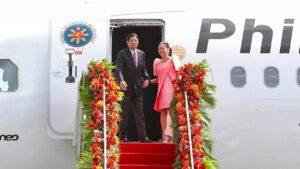
Vietnam well-positioned as top PHL import source, EV investor
By Justine Irish D. Tabile, Reporter
THE PHILIPPINES could tap Vietnam as a major alternate source of low-cost imports as well as investment in its electric vehicle (EV) industry, with advantages conferred by the two countries’ proximity and membership in a regional free trade agreement, analysts said.
Michael L. Ricafort, chief economist of Rizal Commercial Banking Corp., said that Vietnam can step in when the Philippines “diversifies away from traditional import sources such as China.”
He said that due to the ASEAN-China free trade agreement, most import tariffs were reduced to zero since 2010, except rice at 35% (with the Rice Tariffication Law) and sugar at 5%.
However, he said Vietnam is also a member of the Regional Comprehensive Economic Partnership, which promises even more advantages in terms of trade facilitation.
“The biggest opportunity for cooperation is still on the continued supply of rice imports from Vietnam,” Mr. Ricafort said in a Viber message, ahead of a state visit by President Ferdinand R. Marcos, Jr. to Vietnam, where he is due to sign a major rice supply deal.
“And given the proximity of Vietnam to the Philippines, that would also help in reducing transport and overall import costs,” he added.
He said the Philippines could also be a potential market for Vietnamese products due to low labor and production costs.
Aside from trade opportunities, Mr. Ricafort said the Philippines could seek investments from Vietnam, especially in the electric vehicle industry.
“One emerging big opportunity is importing or investment in electric vehicles from Vietnam, particularly VinFast, which is becoming a major global EV producer,” he said.
Trade Secretary Alfredo E. Pascual met with Vietnam’s Vingroup Co., the parent company of VinFast, on Monday at the sidelines of the state visit.
According to the Department of Trade and Industry, VinFast is planning to sell and launch its EV products with the launch of dealerships by April.
“The Philippines welcomes investments in the EV sector as we position the country as a hub for smart and sustainability-driven manufacturing and services industries in Southeast Asia. Hence, we encourage you to explore other investment opportunities besides EV sales and dealerships,” Mr. Pascual said.
Aside from encouraging EV investment, Mr. Pascual also invited Vietnam to look into the Philippines’ tourism and healthcare industries.
China Banking Corp. Chief Economist Domini S. Velasquez said Vietnam has been an important Philippine partner as a source of rice, giving it a key role in our food security.
“We now import the majority of rice from Vietnam. A relationship that assures consistent, affordable, and readily available rice supply to the Philippines would benefit Filipinos,” Ms. Velasquez said.
She added that the Philippines could also take advantage of the partnership by studying Hanoi’s practices in successfully attracting foreign direct investment (FDI).
“The Philippines can take inspiration from Vietnam in implementing various initiatives to attract FDI,” she said.
“Vietnam has been successful in attracting FDI, and the Philippines can learn from their strategies and best practices to enhance its own investment climate,” she added.



